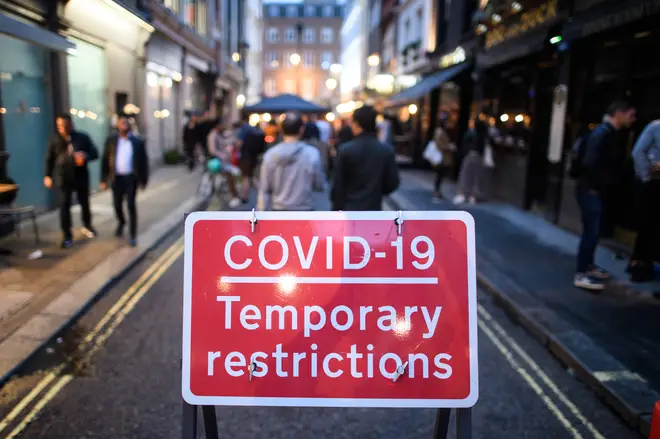
Ali Miraj 12pm - 3pm
25 July 2020, 00:09

20 per cent of UK adults say they think their drinking is "out of control" once a month, a new survey has suggested.
On average, adults are consuming at least twice the daily recommended alcohol levels to reach their desired state of intoxication, according to a new analysis of responses to the Global Drug Survey.
Researchers from the UK, US, Switzerland and Australia analysed responses from 61,043 adults aged 16-80 in 21 countries, including the UK, gathered in 2015.
They say their paper, published in July, is the first to compare the subjective effects of alcohol consumption in different countries.
Participants were asked how much they would have to drink to feel the effects of alcohol, become as drunk as they would like to be and reach their "tipping point".
The latter was defined as where drinking stops being pleasurable and relaxing and induces feelings of anxiety, unwellness and a lack of control.

It is also described as "the point of no return" and the "danger zone".
And they were asked how often in the past year they had reached these stages.
At least once a month, 85% felt the effects of alcohol, 65.6% became as drunk as they wanted to and 20.3% reached their tipping point.
More than two thirds of respondents in the UK, Ireland, France, Austria, Brazil and Germany reported reaching their desired level of drunkenness at least once a month.
The NHS says no level of drinking is safe, and recommends people in the UK drink no more than 14 units a week, spread over at least three days, with each unit measuring 8g of pure alcohol.
In the UK, males who reached their tipping point consumed 32g more of pure alcohol on average than the recommended maximum weekly level (112g) in one sitting.
UK women on average drank 70% of the weekly recommended maximum to get as drunk as they wanted to be in one sitting, while men drank 89% of the weekly maximum to reach this state.
Male drinkers needed significantly more alcohol than women to reach each stage of intoxication, and men under 25 were most likely to reach each level at least monthly.
The researchers were not able to account for any other drug use that may have contributed to intoxication, or other factors such as fatigue or mental health state.

While more recent data suggests fewer young people are consuming alcohol in the UK, the authors say this should not be seen as a reason to reduce prevention efforts, as the survey shows those who do drink are consuming potentially harmful levels.
The researchers say current guidance may have "limited" relevance to drinkers and is likely to be ignored if it does not reflect their experiences.
Instead, encouraging people to avoid reaching their tipping point may be more useful, as well as guidelines on "low risk" drinking.
Adam Winstock, founder of the survey and consultant psychiatrist, told the PA news agency: "Over the last decade or so, the UK is drinking a bit less and rates of non-drinking among young people have actually increased.
"What this says, is that for those people who do drink, they are still drinking in a way to reach intoxication at levels that are associated with significant short and long-term risk.
"We need to start having conversations with people who want to go out and get drunk, about trying to bring that level down a bit."
Lead author Dr Emma Davies, from Oxford Brookes University, added: "We need to tread a line between being realistic about what people enjoy and what's actually going to cause them some damage potentially."
The authors write: "Exploring the role of educational interventions that encourage people with heavy drinking to drink less, while still enjoying their alcohol experience, will be a challenge for those in public health, partly because any move to increase the recommended amount of alcohol in the current guidelines could be unhelpfully used by the alcohol industry.
"Nevertheless, if guidelines do not reflect or represent people's experiences they are likely to be ignored and are unlikely to lead to the public health goal of reduced consumption."
They also suggest that wearable tech could help flag when a person is approaching their tipping point and alert them to slow down or stop their consumption.
The paper, Drinking To Excess And The Tipping Point, is published in the International Journal of Drug Policy.
A Department of Health and Social Care spokesman said: "While most people drink in moderation, some are unaware of the dangers of regularly consuming alcohol at high risk levels. The UK Chief Medical Officers have issued drinking guidelines to help the public make healthier choices, with clear advice about alcohol-related health risks.
"As part of our Long Term Plan for the NHS, alcohol care teams will be introduced in hospitals with the highest number of alcohol-related admissions and we expect this to prevent 50,000 admissions from alcohol related harm over five years."